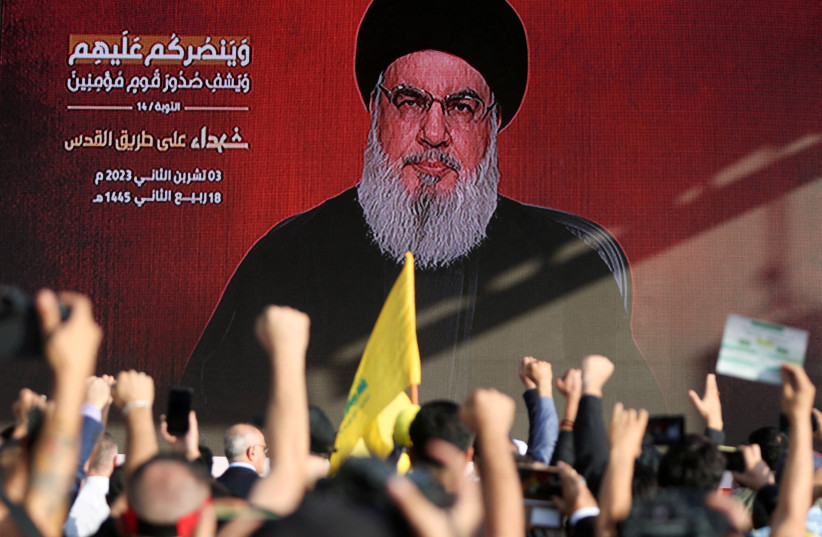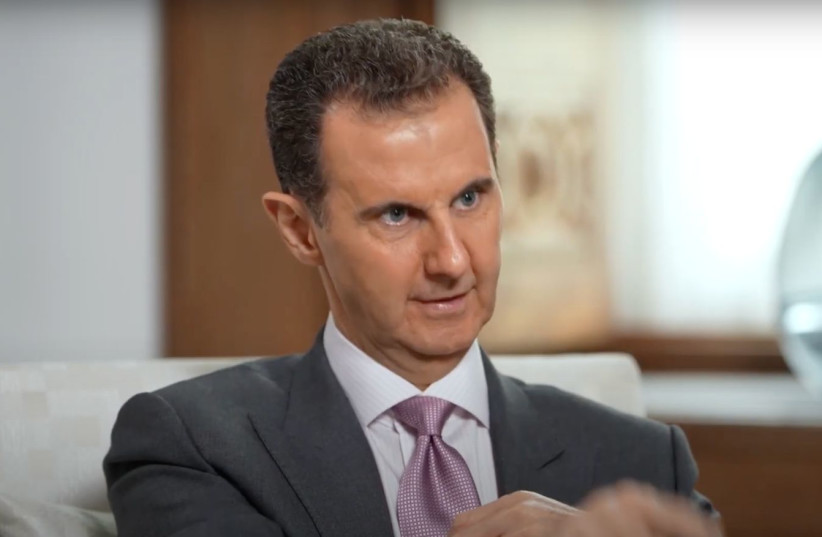Hezbollah is currently engaged in a war of attrition on the Israeli border, but it is not unlikely that they will receive orders from Tehran to redirect forces to another area they recently fought in – northern Syria.
In the past week, a wave of protests began in every district of the rebel-held Idlib province in northwestern Syria. This is the last stronghold of the Syrian opposition and the last remnant of the civil war in Syria from a decade ago, a war that ended in other areas of the country in 2018.
Syria's Idlib district is not ready to surrender
At the height of the civil war in Syria in 2015, opposition forces, led by Jabhat al-Nusra, a jihadist faction of al-Qaeda in Syria, united. The coalition of Islamist organizations pushed the Syrian army out of the Idlib district and has held most of it to this day. This is a district that the Syrian regime cannot afford to ignore due to its strategic location. Idlib is very close to Latakia – the stronghold of Syria's ruling Alawite community, as well as to Russian military bases in Syria – the Russian-operated air force base in Hmeimim and the naval port in Tartus. Despite the relentless Syrian air force bombings on the Idlib district (including even to the present day), the opposition maintains control of the area with impressive tenacity. It seems that in recent years, even Assad's supporters have given up hope of seizing control of Idlib. Shi'ite militias have depleted their forces in Syria, and most of Hezbollah's men have returned to Lebanon. The Russians' attention is elsewhere too, as they are deeply involved in the war in Ukraine.
Bashar Assad's army is not capable of effectively fighting, due to the significant wear and tear it has endured. The economy of Syria is shattered, unemployment is rampant, and the currency continues to lose its value. There is no money to sustain the army or rebuild it significantly. However, this does not stop Assad's army from continuing to bomb the civilians of Idlib indiscriminately. The regime's message is clear: life in the "liberated" territories will remain a hell until they return to Assad's rule.
The rulers of Idlib are trying to gain local legitimacy. They changed the name of their organization from Jabhat al-Nusra to "Hay'at Tahrir al-Sham" (Organization for the Liberation of the Levant or HTS) and seemingly distanced themselves from al-Qaeda, but they remain a jihadist fundamentalist group. The areas under the organization's control essentially are Islamic emirates with strict religious laws. The region does receive support from Turkey, mainly felt in civilian areas, especially regarding food. However, Turkish aid is limited as Turkey itself is experiencing a complex economic crisis. Overall, the Idlib province suffers from severe poverty and unemployment.
Israel is also involved without even knowing it
Both sides, the Syrian regime and the opposition in Idlib, accuse each other of receiving Israeli support. The opposition constantly compares Assad's bombings on schools and hospitals to the current situation in Gaza: to them, Assad and Prime Minister Benjamin Netanyahu are two similar enemies. The only place in Syria where demonstrations in support of Gaza have taken place since October 7 was in Idlib province. By contrast, the Syrian regime accuses the opposition of seeking help from Israel, as the Israeli Air Force often bombs Assad's supporters in Syria – mainly Shi'ite terrorist groups such as Hezbollah. It seems that in the Middle East, the enemy of your enemy can still be your enemy.

Opportunity for the Syrian regime
Last week, protests began in various areas of Idlib province against the rule of HTS and specifically against the leader of the organization, Abu Mohammad al-Julani. Al Jazeera recently covered the developments in the province with concern.
According to Al Jazeera, which is known for its support of Islamic organizations, the protest arose due to two issues: political and economic – the authoritarian rule of the provincial leader, accusations of corruption, and the severe economic crisis. Julani's organization recently carried out a wave of arrests of around a thousand activists from various opposition organizations in the province, including activists who had previously belonged to his organization. The released detainees reported severe torture of prisoners who were arrested on suspicion of collaborating with the Assad regime. Analysts attribute the deteriorating situation to the lack of a political solution and a significant reduction in international aid to the province in recent months. This crisis was created due to the uncompromising and unyielding stance of the zealous jihadist ruler Julani, who is not willing to make any political concessions. The current wave of protests openly calls for the overthrow of Julani's oppressive rule, which some compare to the repression of the Assad regime.
The protesters claim that the current situation is even worse than during Assad's rule because it also includes religious repression in the style of ISIS. The protesters demand the establishment of a local council to run the province. HTS is now trying to calm the protests by releasing more prisoners, monitoring price increases, and easing some taxes. However, it seems that the protests have spiraled out of control and are only gaining momentum.
Interpreters from the Lebanese Al-Mayadeen outlet revealed that behind the protests stands Turkey, which aims to undermine the control of Idlib from the hands of Julani and return it to the Free Syrian Army under Ankara's direct control. The recent developments undoubtedly weaken Julani, who still controls about 75% of Idlib. This marks the breakdown of the coalition after many years of unity.
An opportunity for Assad, a problem for Hezbollah
The division, anarchy, and turmoil in the Idlib region undoubtedly present a golden opportunity for control in Damascus, which may not return. Now Assad's army could potentially enter the region with significant support to restore it to the embrace of the regime, after almost a decade of neglect. However, this would require substantial support forces. For the occupation of Idlib, a significant asset for the Assad regime in particular, and the "resistance axis" in general, Iran would need to send substantial forces. These forces mainly include Shi'ite Popular Mobilization Unit militias from Iraq and Hezbollah forces from Lebanon. However, Hezbollah cannot afford a two-front war.

Now, Iran's axis of resistance, the Syrian regime, and Shi'ite militias face a crossroads: whether to continue the war in the Israeli arena or redirect forces to northern Syria? In the case of the Israel front, it is a purposeless war with Hezbollah already suffering over 230 casualties and no achievements against the highly motivated and prepared IDF. In the case of Idlib, however, it presents an opportunity for a significant strategic victory against the disintegrating opposition.
Will the Syrian arena affect our northern border? Will Hezbollah agree to a compromise on our border in order to turn its attention to Syria? Only time will tell.
Dr. Yaron Friedman is a researcher, lecturer, and Arabic teacher in the Department of Middle Eastern and Islamic Studies at the University of Haifa. Yaron manages the newsletter This Week in the Middle East.
